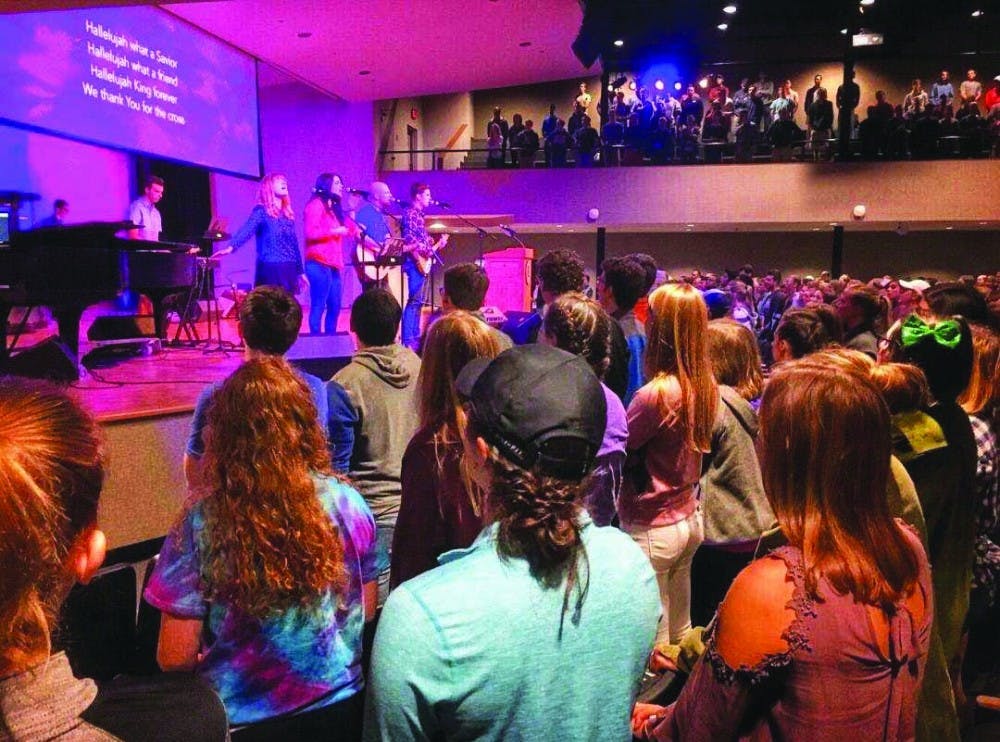By Malaina Yoder | Contributor
I'm grateful for the opinions expressed in last week's article "Chapel: a letter from a concerned student." When we disagree, we have a tendency to dismiss people and leave conversation instead of pressing in to make things better. The author chose to engage with chapel content and principles. I greatly appreciate that. I should say that I'm not associated with the chapel program and that I'm writing out of my own interactions with chapel. I believe I use portions of last week's article in context, true to the spirit in which they were written.
- On the meta-chapel: ". . . isolated anecdotes do not constitute quality discussion of something as vital as chapel."
- On the seven guiding principles: "It is unproductive to affirm a guiding principle when the principle is undefined."
- On chapel topics: "It is my unconfirmed suspicion that we are discussing only what is politically convenient to discuss: that is, the social issues du jour."
On the other hand, I have a friend who empathized with last week's article because she feels as if the topics she's struggling with are ignored. I appreciate her openness in sharing this, and I would encourage anyone who feels that way to reach out to Campus Pastor Jon Cavanagh and tell him what's important to them.
In addition, the social issues addressed go against the grain at Taylor, not with it. Coordinators get backlash from students, parents, faculty, alumni and others who are concerned. Taylor University is largely isolated in a Christian subculture with students from similar experiences. Not talking about these issues would be an easy way out and wouldn't end division. Whether or not we agree or disagree with the agenda of a social issue, we should talk about it. That's what chapel accomplishes when they bring controversial speakers.
- On chapel theme: "With the exception of Reverend Nirup Alphonse, no one has discussed what Christian community is."
- On a specific social issue: "Critical race theory is still discussed with greater frequency than any other topic, and with only vague connections to 'community.'"
I do know that cultivation is a tearing up of dry earth and plowing it under. It makes a mess so that air and water work its way into the soil. We need to continually discuss critical race theory, not to create division, but to engage the pain that already exists.
If we don't talk about it, our church will be defined by anger, suppression, avoidance and fear. If we don't acknowledge issues that already exist, we cannot walk with each other in mutual pain. Critical race theory is crucial to cultivating Christian community and our conversation around it can be a model for how we talk about other divisive issues.
The solution is not to go back to bed. I've often heard that someone doesn't like chapel, so they don't go. It excludes them from a conversation that needs their voice, their disagreement. The value of chapel is not a specific ideology; it's that all of our ideologies are present. We're choosing to worship with one another, listen together and engage the content. I thank the concerned student for doing just that.




